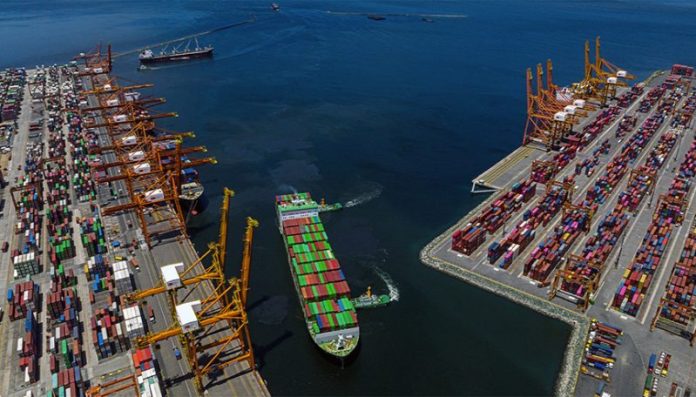
-
International Container Terminal Services, Inc. targets to cut direct and indirect greenhouse gas emissions by 26% per container move by 2030
-
It also commits to net zero emissions by 2050 as part of its decarbonization strategy
-
The targets are part of ICTSI’s Climate Change Action Initiative launched in July 2023
International Container Terminal Services, Inc. (ICTSI) is targeting to cut its direct and indirect greenhouse gas emissions by 26% per container move by 2030 using 2021 as baseline, the port operator said in a regulatory disclosure.
It also commits to net zero emissions for Scopes 1 (direct emissions) and 2 (indirect emissions) by 2050 as part of its decarbonization strategy.
“Our commitment to decarbonisation targets marks an important step on our journey to becoming a more sustainable company and as part of this, we are actively implementing initiatives to maximize energy and resource efficiency, reduce carbon intensity, and lower emissions,” said Christian Gonzalez, ICTSI executive vice president, chief compliance officer, and chief sustainability officer.
“Making a positive environmental impact is fundamental to our business strategy which means we will continuously review and update our goals to ensure their relevance and accelerate our efforts towards mitigating climate change,” Gonzalez added.
The targets are part of ICTSI’s Climate Change Action Initiative launched in July 2023. The initiative will develop a comprehensive roadmap for ICTSI to align its business strategy with the goals of the United Nations (UN) Paris Agreement.
READ: ICTSI launches Climate Change Action Initiative
The Paris Agreement is a legally binding international treaty on climate change adopted by 196 parties at the UN Climate Change Conference on December 12, 2015. It entered into force on November 4, 2016.
The initiative sets decarbonization targets for the entire ICTSI Group to include all terminals, covering Scope 1 and Scope 2 from generation of purchased electricity.
Further, ICTSI is working towards accounting for the full GHG emissions footprint of the entire value chain, including Scope 3 emissions. An inventory is expected to be established by 2025, followed by a review of relevant targets.
To ensure a credible decarbonization strategy, ICTSI said it has appointed an internal team led by Nathan Clarke, vice president and head of Global Engineering–Infrastructure and Project Delivery. Additionally, the services of Jacobs Solutions, Inc., a leading international consulting firm, have been engaged to provide an accurate view of emissions across ICTSI terminals and develop a tangible roadmap for emission reductions. ICTSI said the collaboration will establish a GHG emissions baseline, develop plans for reducing GHG emissions, set targets and create a framework to monitor performance.
ICTSI said it is fully committed to operating its terminals in an environmentally responsible and sustainable manner.
The company is actively implementing efforts to maximize energy and resource efficiency, reduce carbon intensity, and lower emissions. These efforts include aligning productivity and service-efficiency key performance indicators with climate change management, establishing progressive targets for continuous improvement, incorporating environmental factors in the procurement process, and exploring options for low-emission technology and increased usage of renewable energy sources.




